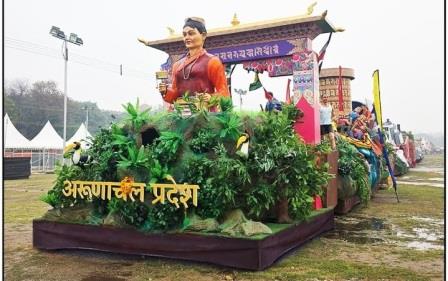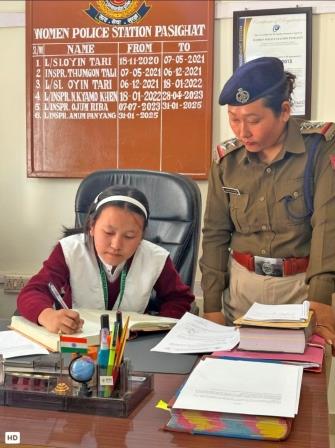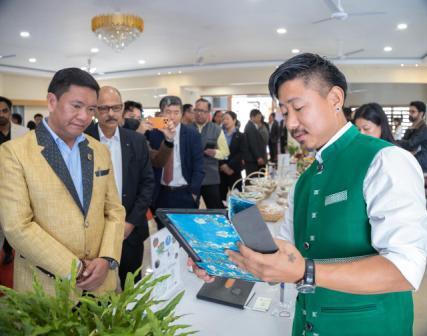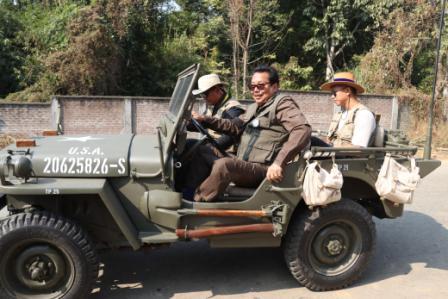-
 Arunachal tableau on R-Day spotlights state’s emergence as Adventure Capital…
Arunachal tableau on R-Day spotlights state’s emergence as Adventure Capital…
-
Etalin marks National Voters’ Day, encourages youth participation in democracy
-
Sona reviews PMGSY, VVP projects in Itanagar Circle
-
Lok Bhavan celebrates UP Diwas
-
 KGBV student leads WPS Pasighat on National Girl Child Day
KGBV student leads WPS Pasighat on National Girl Child Day
-
Meritorious students felicitated on National Girl Child Day
-
Awareness on POCSO held as part of National Girl Child…
-
Anini certifies 79 Nature Guides on National Tourism Day
-
 Startup success stories reflect potential of state’s youth: CM
Startup success stories reflect potential of state’s youth: CM
-
 Mein participates in vintage Willys Jeep Rally, inaugurates World War…
Mein participates in vintage Willys Jeep Rally, inaugurates World War…
Draft National Education Policy(NEC) 2019 has proposed a large number of measures for an almost complete overhaul of the current education landscape of the country. It is a 484-page exhaustive policy document encompassing the end-to-end of the entire education system, right from school to higher education level. But since NEC is a mammoth policy initiative with extensive ramifications, expectedly, a wide range of discussions and deliberations have commenced weighing its pros and cons. And among the host of suggestions, that which have been proposed for bringing changes in the present school level education structure are attracting a good spotlight particularly because it will be touching the greater part of the population.
Although there might be differences of opinion regarding many points of the entire draft, recommendation of extending the ambit of Right to Education Act, 2009 at both ends i.e early childhood education and secondary school education will perhaps be welcomed by most stakeholders in the education fraternity. Currently, RTE Act provides for free and compulsory education to all children from the age of 6 to 14 years which effectively implies end of state patronage after Class VIII and a self-financing burden thereafter and in reality, an end of educational journey for a huge percentage of financially weak aspirants. If it is finally accepted, it will be a great relief for the parents of these economically weaker sections of students as the Act will extend coverage to all children right from early childhood i.e 3 years to the end of the secondary education i.e 18 years. Also, there is proposal of introducing a 5+3+3+4 design of school education comprising five years of foundational stage (three years of pre-primary school and classes one and two), three years of preparatory stage (classes three to five), three years of middle stage (classes six to eight) and four years of secondary stage (classes nine to 12) in place of the age-old 10+2 system. Furthermore, to bring a much needed qualitative improvement in school education it has been suggested that classroom demonstration and interview be made a part of teacher recruitment process. Along with these, a slew of changes such as exam reforms, better infrastructure, a minimum of 5-7 years teacher deployment period with a particular school, state-wise creation of State School Regulatory Authority are also encouraging.
But, keeping in view of the diversified aspirations and requirements of the nation as a whole, it is necessary for further insightful exchange of opinions before arriving at the most balanced and acceptable measures. In any case, it should be a desirably balancing act to ensure attainment of the overall aims of access, equity, quality, affordability and accountability of the education system.

Kenter Joya Riba
(Managing Editor)She is a graduate in Science with post graduation in Sociology from University of Pune. She has been in the media industry for nearly a decade. Before turning to print business, she has been associated with radio and television.
Email: kenterjoyaz@easternsentinel.in / editoreasternsentinel@gmail.com
Phone: 0360-2212313

